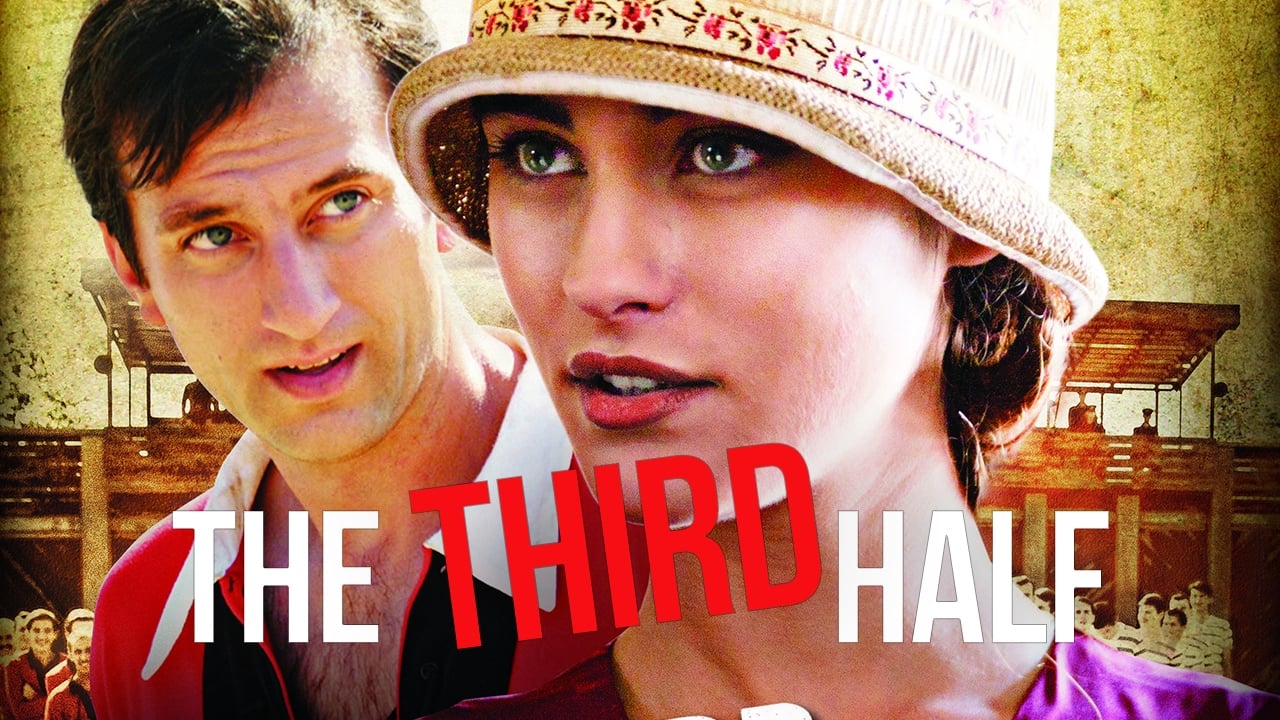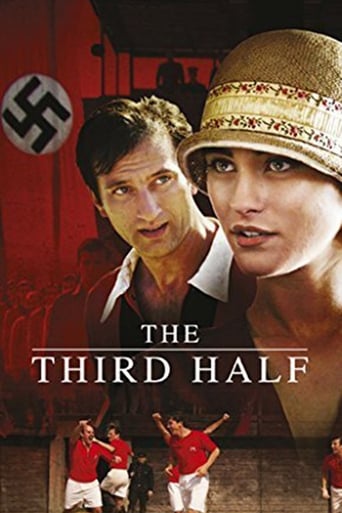Linbeymusol
Wonderful character development!
Platicsco
Good story, Not enough for a whole film
CrawlerChunky
In truth, there is barely enough story here to make a film.
FrogGlace
In other words,this film is a surreal ride.
Kirpianuscus
embroidery of stories. slice of history. joy, love, ambition, passion. and the war. changing all. a great film for the fine recreation of atmosphere. for the good intentions. for the sketch of love story. for the passion for football in coherent manner. like many films from the East, a form of exorcism. not real surprising. because the art is tool for old testimonies about pain, injustice, hope, small victories. and this is the motif for see The Third Halv. more as a collection of old photos than example of acting. because remains the impression of fear of actors to assume in real manner, the roles. sure, an explanation could be the absence of artistic skills. but important remains the authenticity of scenes from a lost Macedonia and the stories of this in many ways, ignored land.this is the essence of the work of Darko Mitrevski. and it is an admirable work.
Don_Lephtie
This film has been unfairly criticized in my opinion. Even before the film was released, news articles were turning up with angry Bulgarians complaining about the historical accuracy of the film well before it was even viewable to the public. But the film is not about the Macedonian-Bulgarian problem in foreign relations, it is about the Jewish community in that region, the Holocaust, love between a young man and a young woman, and love for football (soccer).One of the major strengths of the film is the multiple languages used fluently throughout (English, Ladino, German, Serbian, Bulgarian, Roma and Macedonian,), with some of the actors, especially Rade Serbedzija, doing a good, convincing job in their roles. Although the film stretches a few historical points in order to create a better story, it does depict most of the events of WWII in the Balkans correctly. It depicts the ethnic multiplicity in the region of Macedonia before the war, the local resentment to Yugoslav rule, the Axis invasion, the initial support of the local population to Bulgarian occupation, and the expulsion of the majority of Macedonia's Jews to the death camps at Treblinka.Some criticisms of the film include its length, and the characters. It tries to depict several years, but without effectively portraying the passing from one time to another, leaving the viewer confused as to when the story is taking place at any certain point. Also, many of the characters have little depth, and seem rather one dimensional (although there are a few characters who the audience learns to empathize with).Other than these criticisms, it is a great film. Bulgarian nationalists' opinions should not decide whether one should see the film or not. During World War II the Bulgarians saved the Jews of Bulgaria from the Nazi death camps, but in the zones they occupied, they rounded up the Jews and sent them to their deaths on their own, without German help. That is what this movie is about. If the Bulgarians want to portray their efforts in saving Jews, watch a different movie.
rang_zoran
This movie is a brilliant example of the propaganda, which uses some some groups in today's Republic of Macedonia. Well-made propaganda, which aims to strengthen the macedonistic national doctrine, casting shadow on the main "threat" – the Bulgarian past of Slavic Macedonians. It was no coincidence that the government in Skopje sponsored this film. Various facts are true in this mess of the historical point of view (Bulgaria was on the side of Germany etc.), but other are incorrect. An example for manipulation of facts is the invention of a conflict between the population in Vardar Macedonia and that in other parts of the then Bulgaria. To transfer present (macedonistic) realities on the (nonmacedonistic) past of Vardar Macedonia, when only a small fraction of our people (Slavic Macedonians) was against Bulgaria - Communists and Serbs, is unfair. When the German troops defeated Yugoslavia, the population in Vardar Macedonia hopes Bulgaria to administer these lands. Unfortunately, in these lands has both management of Bulgarian authorities and a significant presence of German troops. This is the reason for the giving of Jews from the region - incomplete sovereignty of Bulgaria. Where Bulgaria has full sovereignty, the Jews were saved. However there is a need to think and write clearly about these facts, not distorted them and used for propaganda through films.P.S. Only to add that the coach of the team in Skopje, the Hungarian Jew Ilesh Spitz, during the deportation of the Jews of Vardar Macedonia was released thanks to an intervention by the chairman of the football club, the Macedonian Bulgarian Dimitar Chkatrov. Chkatrov was executed as "an enemy of the people" by communist authorities in 1945.
bob_minevski
Movie is average at best and I think this is even an optimistic conclusion. My opinion is that by presenting a teary and supposedly touching story it tries to promote completely different ideas. I can't help but agree with ppl who wrote on that before me. Just a short note to Goran Atanasovski who claims to be an author of something - dude, don't be ridiculous exposing yourself like that. Why don't you blame Bulgarians for all the Jews killed in Europe and glorify Macedonians for the victory over Nazi Germany? Don't you think there are still Israelis alive who know the truth about those things? Fortunately enough I'm pretty confident that there are folks out there who are well aware of the history of Europe and they can only mock statements like yours. Oh yes, and about Bulgarians changing the names of Macedonians in 1941- do I have to mention here the names of all Macedonian revolutionaries from the end of 19th and the very beginning of 20th centuries? Dame GruEV, Gotse DelchEV, Gjorche PetrOV, Hristo TatarchEV, Hristo MatOV, Boris SarafOV, Todor AleksandrOV or maybe the proclaimed father of the Macedonian nation K.P.MisirkOV. According to your logic all main Macedonians had Bulgarian names long, long before 1941. Or should I mention Blagoy HristOV, who after 1944 changed his name to Blaze RistOVski - well known Macedonian "academician"; or maybe Lazar KolishEV - a communist leader in Macedonia who in a letter to the Bulgarian tzar Boris III begged to be pardoned and released from prison stating that he was Bulgarian but again after 1944 changed his name to Lazo KolishEVski?

